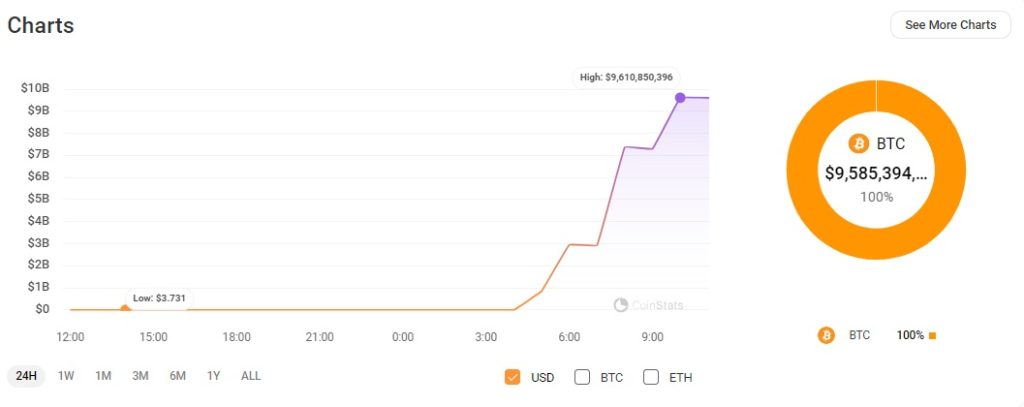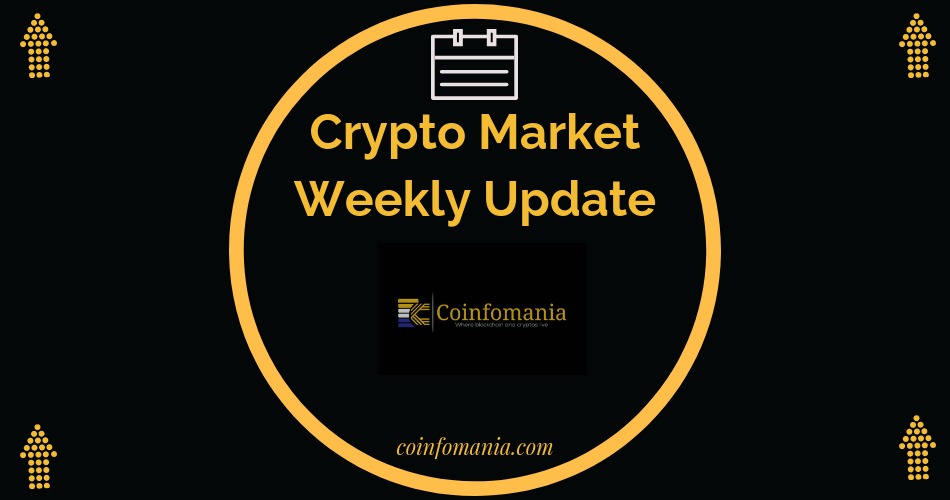In a significant development in the cryptocurrency world, the defunct Mt. Gox exchange has recently transferred $9.62 billion worth of Bitcoin into a new wallet, raising hopes among its creditors.
The consolidation involved 141,686 Bitcoin moved into the wallet “1Jbez” from various other cold wallets associated with the exchange.
Rehabilitation Trustee Confirms Repayment Plans
These movements are seen as a positive indication that users who have been unable to access their funds since 2014 might finally be repaid. The transfer represents the first on-chain movement of funds from Mt. Gox in over five years and aligns with the exchange’s plans to repay creditors by the end of October 2024.
Anndy Lian, an intergovernmental blockchain expert and author of “NFT: From Zero to Hero,” explained that the near $10 billion consolidation likely points to Mt. Gox’s intentions to repay its users. Lian remarked that this is the first movement of assets from Mt. Gox’s cold wallets in over five years and is likely part of the plan to distribute the assets back to creditors before the promised deadline of October 31, 2024.
Following these reports, Mt. Gox rehabilitation trustee Nobuaki Kobayashi confirmed that the consolidation is part of the exchange’s plans to start repaying creditors.
In a May 28 announcement, Kobayashi stated that the Rehabilitation Trustee is preparing to make repayment for the portion of cryptocurrency rehabilitation claims to which cryptocurrency is allocated. He requested that creditors wait for a while until the repayments are made, indicating that the current deadline might face further delays, as it was initially set in September 2023.
Over $9.4 billion worth of Bitcoin is owed to some of Mt. Gox’s creditors, who have been waiting to get their funds back for over ten years. Mt. Gox, which was one of the earliest cryptocurrency exchanges, once facilitated more than 70% of all trades within the blockchain ecosystem before its collapse in 2014 after multiple unnoticed hacks.

Market Reacts to Potential Repayment
The market’s response to the first batch of Mt. Gox transfers saw a dip in Bitcoin’s price by 2% on May 28, to a daily low below $67,500, before recovering to just above $68,000.
This dip is viewed as a sign of market pricing in a potential repayment by Mt. Gox. Lian noted that the market has reacted to these movements with a slight bearish sentiment, as Bitcoin’s price dropped around 2.1% to as low as $67,505 after the transfer.
This reaction could be due to expectations of selling pressure from the creditors once they receive their repayments. Despite the slight price dip, Lian emphasized that a potential repayment would resolve one of the most pressing, long-standing issues in the crypto industry.
Mt. Gox’s Rise and Fall
Mt. Gox, originally established as a trading card website, transformed into one of the first and largest cryptocurrency exchanges by 2010, facilitating over 70% of global Bitcoin transactions at its peak. However, the company’s initial success was marred by a significant hack in 2011, where attackers exploited security vulnerabilities, leading to the theft of around 25,000 BTC. Despite this, Mt. Gox continued operations and grew exponentially.
The platform’s security issues persisted, and in February 2014, Mt. Gox suspended all trading, closed its website, and filed for bankruptcy protection. The company announced that approximately 850,000 BTC (valued at around $450 million at the time) had been lost, allegedly due to theft over a prolonged period. This staggering loss affected around 127,000 creditors, including individual investors and institutional entities.
Investigations revealed that the exchange had been suffering from security breaches and mismanagement for years, with some accusations pointing towards internal fraud. The fallout from the collapse sparked significant controversy and legal battles. The CEO, Mark Karpelès, was arrested in Japan in 2015 on charges including embezzlement and data manipulation, further highlighting the company’s internal turmoil.
The Mt. Gox bankruptcy proceedings have been prolonged and complex, with creditors still seeking restitution. In 2018, a rehabilitation plan was approved to redistribute the remaining assets to creditors. The Mt. Gox incident underscored the need for stronger security measures and regulatory oversight in the burgeoning cryptocurrency market, serving as a cautionary tale for investors and exchanges alike.
- Crypto Price Update July 24: BTC Maintains $66K, ETH at $3.4K, XRP, TON, and ADA Rallies
- Bitcoin Falls to $65K as Mt. Gox Transfers $2.8 Billion BTC to External Wallet
- News of Marathon Digital’s $138 Million Fine for Breach of Non-Disclosure Agreement Triggers a Bearish 2.5% of Its MARA Stock
- Are $530M Bitcoin ETF Inflows a Blessing or Caution?
- Metaplanet Teams with Hoseki for Real-Time Bitcoin Holdings Verification
- Building Secure Blockchain Systems: An Exclusive Interview with ARPA and Bella Protocol CEO Felix Xu
- Building The “De-Facto Crypto Trading Terminal”: An Exclusive Interview with Aurox CEO Giorgi Khazaradze
- Building a New Global Financial System: An Exclusive Interview With Tyler Wallace, Analytics Head at TrustToken
- “Solana is the Promised Land for Blockchain” — An Exclusive Interview with Solend Founder Rooter
- El Salvador: Where The Bitcoin Revolution Begins With A Legal Tender

 Why Trust Us
Why Trust Us







